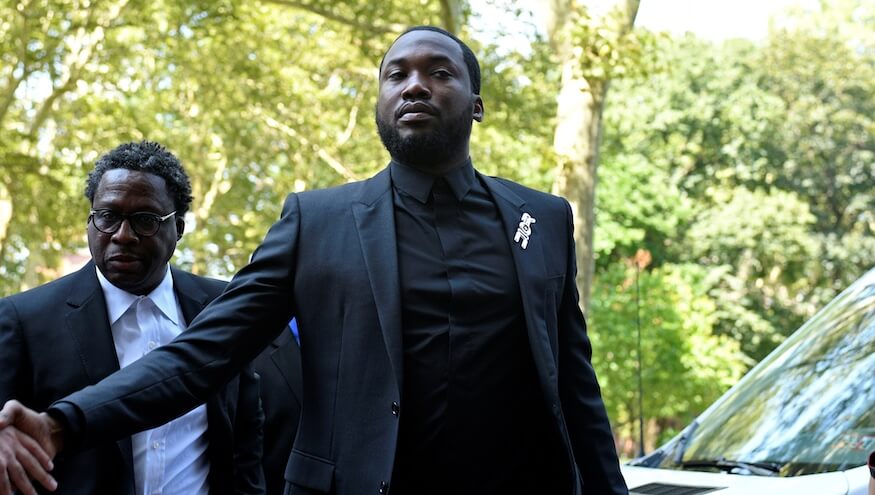Philadelphia rapper Meek Mill, who has become an advocate for reform of the U.S. criminal justice system, is entitled to a new trial on drugs and weapon charges that have kept him on probation for a decade, a Pennsylvania appeals court ruled on Wednesday.
A three-judge panel of the Pennsylvania Superior Court agreed that Philadelphia Judge Genece Brinkley, who presided over a 2008 trial that resulted in his conviction, was no longer impartial, as Meek Mill’s attorneys argued. It ordered a replacement for Brinkley in the case.
The sole witness against Meek Mill at his 2008 trial was a discredited Philadelphia drug squad officer who is no longer with the city’s police force.
“Williams’ right to be tried before an impartial judge is necessary in this case because the trial judge heard highly prejudicial testimony at the first trial, which was a bench trial, and made credibility determinations in favor of a now discredited witness and against Williams,” President Judge Jack A. Panella wrote in an 18-page opinion.
In November 2017 Brinkley sentenced the rapper to up to four years in prison, saying a pair of arrests violated probation conditions she set following his 2008 convictions. He served five months.
The arrests, one for popping a wheelie while shooting a New York City music video, did not result in convictions.
After the sentence, Meek Mill, whose given name is Robert Williams, became a cause celebre for musicians, celebrities and criminal justice reform campaigners who said it was typical of a U.S. legal system that treats minorities unjustly. The rapper is African-American.
Mill’s song “Going Bad,” on which he collaborated with Drake, hit No. 6 on the U.S. charts this year. The song was released months after Mill was released from prison.
























